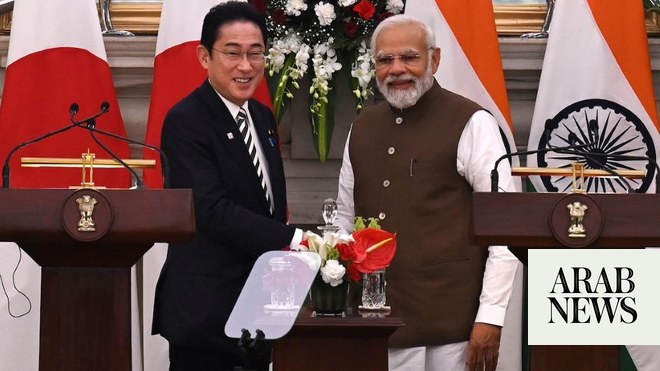
The UK should make a major post-Brexit tilt towards the Indo-Pacific region, ploughing military, financial and diplomatic resources into building a major democratic counterweight to China’s growing threat to the post-1945 world order, a major report urges.
The report, prepared by a group of UK politicians for the right of centre thinktank Policy Exchange, and endorsed by the former Japanese prime minister Shinzo Abe, represents a key shift in UK foreign policy thinking.
The UK and the EU have agreed on the need for a new role for Britain dedicated to helping the countries of the Indo-Pacific area stand up to Beijing by upholding democracy, free trade supported by open seas and an uncensored internet.
The report is deliberately framed as an attempt to carve out “the essence of a manifesto of what a global Britain looks like in the 2020s and beyond”.
Requiring a major shift in resources – in part enabled by last week’s rise in defence spending and the summer merger of the UK’s foreign and aid budgets – the proposals would set the UK up as a country committed to challenging China’s authoritarian model. It proposes the Indo-Pacific countries commit to a 21st century charter for democracy akin to the Atlantic charter signed by the UK and the US in 1941.
In a region accounting for close to half of global economic output and more than half the world’s population, the report envisages the UK working closely with allies such as Australia, India, Japan, South Korea and Taiwan.
Overseen by Stephen Harper, the former Canadian prime minister, it will also receive support from the current Australian prime minister, Scott Morrison.
Critics of the strategy will argue Britain is late to the region – both France and Germany have published Indo-Pacific strategies, and the UK’s ambitions exceed its resources and relevance.
But Abe writes: “Britain can work with countries throughout the region on upholding democratic values and supporting the multinational institutions that have developed in recent years. On the security front, the British military, and the Royal Navy in particular, will be a welcome presence in the seas of the Indo-Pacific.”
The report argues: “In contradiction with some of the prevailing narratives about Britain’s assumed post-Brexit irrelevance, friendly countries from across the IPR [Indo-Pacific region] are eager to see more UK involvement in their part of the world.
“To fully globalise Britain, the Indo-Pacific region, stretching from the eastern Indian Ocean to the western Pacific and Oceania, must become a priority.”
The report says that, since the early 2010s, the UK has been too narrowly focused on trade with China and failed to see the rise of Asia as an epochal transformation driven by many contributions, and not just China.
The Indo-China tilt, it says, is about the UK recovering “its much older role as one of the custodians of a multilateral consensus on regional order”.
“Britain recognises the increasing strategic competition between two competing visions of regional order, offered by China and the United States. The UK does not seek any new cold wars, but it will defend its interests at home and abroad,” the report states.
“At the same time, the UK government cannot take a value-neutral position between Beijing and Washington, nor should it see itself as leading a new ‘non-aligned’ movement of smaller states in opposition to the two great powers of the region.
“Britain should defend global cooperation, openness, respect for law and adherence to accepted norms of behaviour in concert with the United States and like-minded nations in the Indo-Pacific and beyond.”
The UK has a duty to “counter the threats which strike at the pillars of the post-1945 international system of norms and rules – the system in whose creation Britain was essential and whose demise would adversely affect the country’s security and prosperity”.
As part of the tilt, the UK would apply for membership of the regional free trade partnership, seek to join the existing US, India, Australia and Japan security dialogue and enhance its military capacity in bases such as Diego Garcia.
“The UK government should expand the deployment of Royal Navy assets, RAF aircraft and Army (including Special Forces)/Royal Marines personnel to achieve uninterrupted, year-round UK military presence in the IPR (both on operational and training missions).”
The City of London would offer its financial muscle through an Indo-Pacific investment initiative to set up a clean alternative to the Chinese belt and road initiative – a strategy adopted by China in 2013 to invest in nearly 70 countries and international organisations.
An Indo-Pacific multinational investment treaty is also proposed to protect investors from Chinese discriminatory practices and allow investors to enter into arbitration under international law.
It also envisages the UK acting as a regional champion for human rights, not just in the former colony Hong Kong, but to promote and strengthen democratic values in the region.
In the case of Hong Kong, the report proposes that sanctions are now imposed on to Chinese Communist party officials for their role in the destruction of the territory’s sovereignty.
In a move that would further antagonise China, the report suggests the UK should start normalising relations with Taiwan, especially on global issues such as cyber security and health.











